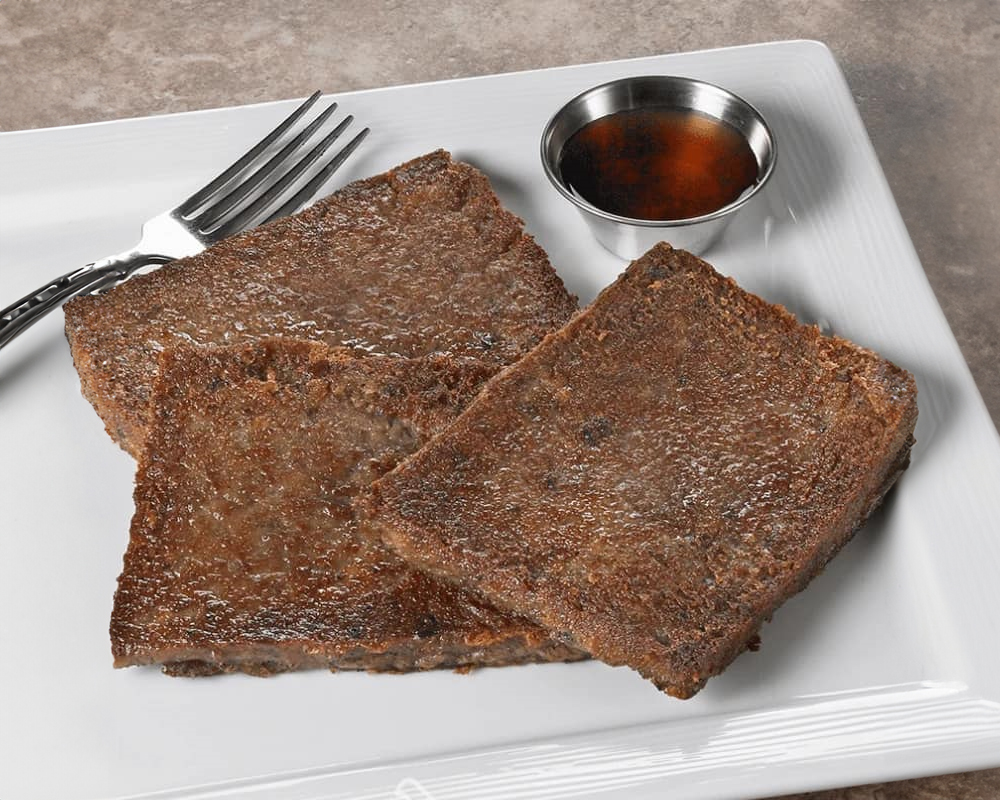Everything but the Oink: The Origins of Scrapple
If hot dogs are the culinary mystery novels of American cuisine, then scrapple is the Pennsylvania Dutch twist ending. This humble breakfast loaf has been raising eyebrows (and cholesterol levels) for centuries. A blend of pork scraps, cornmeal, and spices cooked into a savory brick, scrapple is proof that the Pennsylvania Dutch wasted nothing and seasoned everything. Slice it, fry it until crispy, and you’ve got a dish that’s as polarizing as pineapple on pizza. Some folks swear by it with apple butter, others drizzle on maple syrup, and plenty keep it simple with ketchup. However you dress it, scrapple is a cut above—literally.

Scrapple has roots in the 17th and 18th centuries, among German settlers who are now known as the Pennsylvania Dutch. They brought with them panhas, a dish made from pork scraps and grains. When they set up shop in Pennsylvania, they swapped in local staples like cornmeal, creating the loaf we fry up today. It was the ultimate thrifty invention. Nothing from the pig went to waste. Head, heart, liver, and trimmings all went into the pot. Add flour and spice, let it set, then slice and fry. The result was a dish that filled bellies without emptying wallets. Talk about living high on the hog—while also eating the low parts.
Scrapple has a reputation similar to that of its cousin, the hot dog. Everyone loves the taste, but not everyone wants the ingredient list. “Everything but the oink” is a phrase often tossed around. Still, scrapple isn’t trying to hide what it is. It’s right there in the name—scraps. The Pennsylvania Dutch weren’t squeamish. They saw opportunity in odds and ends, turning what some might discard into a breakfast tradition that still sizzles in Lancaster diners and Philly kitchens.
Scrapple doesn’t just sit around loafing. To reach its full potential, it must hit the hot pan. The goal is a crispy outside and a tender inside. Too thin and it burns. Too thick and it’s gummy. Get it just right, though, and you’ll understand why it remains a Pennsylvania staple. And then comes the great debate: what goes on top? Apple butter brings a sweet country charm, maple syrup makes it breakfast’s best friend, while ketchup adds a tangy kick. Some adventurous eaters even layer it with eggs in a sandwich. Whatever your topping, scrapple has a way of hogging the spotlight once it’s on the plate.
Scrapple may never win a beauty contest, but it has endured for centuries because it delivers on what truly matters: flavor, thrift, and tradition. From German farm kitchens to Pennsylvania diners, this scrappy little loaf has oinked its way into the cultural identity of the region. Like hot dogs at a ballgame, scrapple is more than just food—it’s a story, a memory, and for some, a taste of home. Love it or leave it, scrapple remains the breakfast food that refuses to be pork-gotten.
unchartedadam
